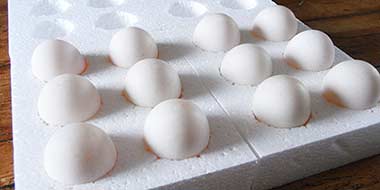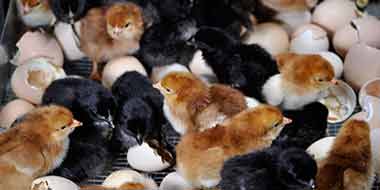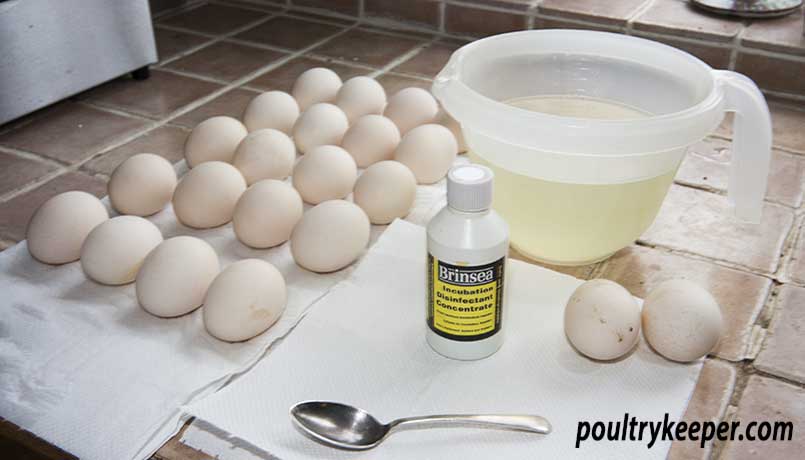
There are arguments for and against cleaning and sterilising hatching eggs. This article briefly discusses why you may not need to wash your eggs and will show you how to clean eggs for incubation if you decide it’s necessary.
Some experts say not to clean eggs before incubation, while others say it’s a good idea because bacteria multiply quickly at incubation temperatures.
Eggshells are porous and can transmit microorganisms through the shell. Infection is most likely to happen in dirty nests during laying or during egg collection and handling. Whilst this is a concern for our food safety, diseases can also be transmitted from one generation of birds to another or cause embryos to die during incubation.
In general, poultry keepers don’t wash eggs before incubation; however, there are times when we can’t avoid dirty hatching eggs, so it might be a good idea to sterilise them with an incubation disinfectant.
The cuticle
Mother Nature's protection against bacteria
The egg cuticle is a protective protein layer that covers the surface of an egg. You can see it is wet in the moments after it is laid, but it dries off quickly since the egg is warm. The cuticle fills the pores to prevent bacteria from entering and is the first line of defence against infection.
Research at The University of Edinburgh’s Roslin Institute has shown a natural variation in cuticle quality between different hens.
If you wash the egg, the cuticle is removed, which can then allow bacteria to enter.
With the protection provided by the cuticle, courtesy of Mother Nature, there usually isn’t any need to wash and sterilise eggs before incubation.
When do we need to sterilise eggs?
Nest box hygiene is essential to prevent eggs from getting soiled, so before you consider sterilising hatching eggs, try to ensure that nest boxes are clean. Make sure hens aren’t sleeping in their nest boxes at night.
If eggs are soiled, you can often remove small lumps of muck with the blunt side of a knife which is sufficient in many cases.
If you’re selling hatching eggs, you should be selling clean eggs, or if you can’t do that, communicating with buyers that you will be washing eggs before sending them unless they ask you not to.
Chicken eggs should be easy to keep clean; however, I have found some waterfowl eggs get badly soiled. I have kept twenty ducks housed at night, and despite trying to give them a nest, they would lay eggs on the floor of the house and often roll them into the muck before I could collect them in the morning.
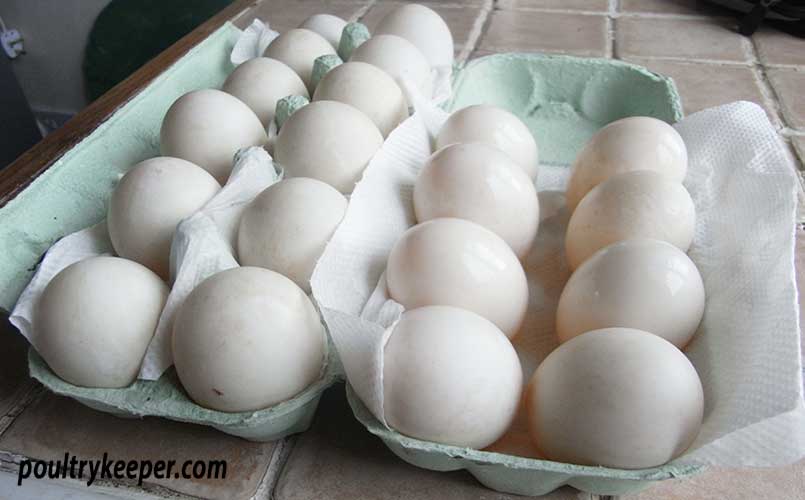
I washed and sterilised these eggs and still had a good hatch rate. It’s all or nothing though, if you’re going to sterilise one, you must sterilise them all.
How to clean eggs for incubation
Remember, there is no point in cleaning your eggs unless you also sterilise your incubator. Incubators operate around 37.5°C, which is the perfect temperature for bacteria to multiply.
You can generally use the same incubation disinfectant inside your incubator as you use on your eggs. Popular makes of incubation disinfectant are from Brinsea and ChickTec.
Before you start, scrape any obvious muck or dirt off gently with the blunt edge of a knife.
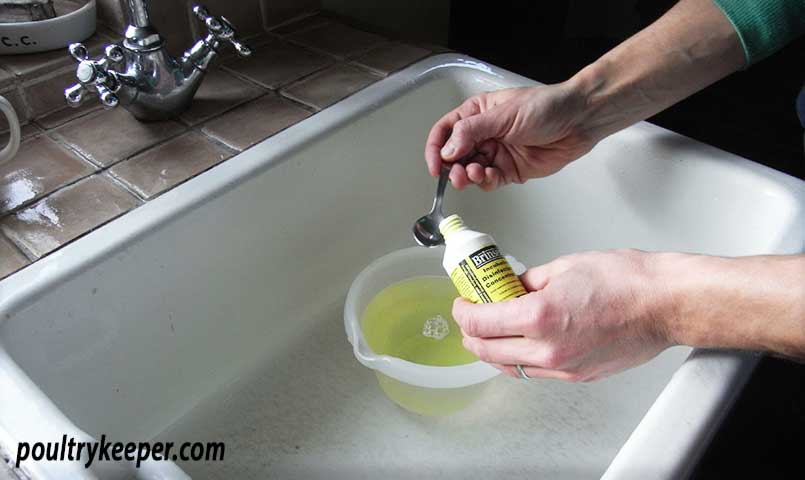
Incubation disinfectant is concentrated, so it comes in small bottles and needs diluting to the correct strength in warm water.
The solution must be warmer than the egg, so bacteria aren’t drawn in through the shell’s pores.
Dip an egg in the solution so that it is wet, and use a soft scrubbing brush to remove stubborn muck. Dip it again to rinse off and then leave the egg to dry on a clean surface, pointed end down. I use some kitchen towel in an eggbox.
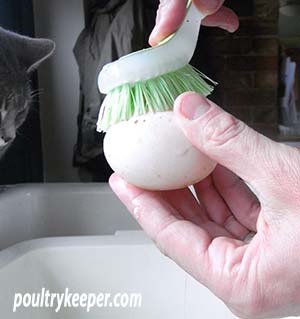
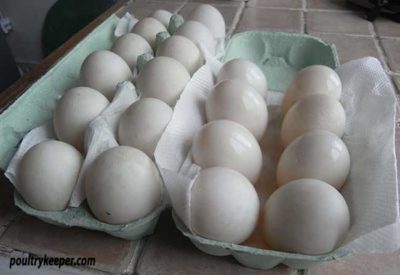
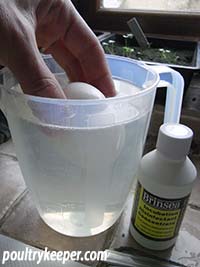
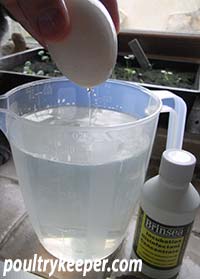
Washed eggs
Once eggs are sterilised, do not handle them afterwards unless you have washed your hands thoroughly with an anti-bacterial hand wash. Remember this also applies during incubation when you are handling your eggs, such as when candling.
Incubation
Disinfectant
Bacteria multiply very quickly at incubation temperatures.
I use a biodegradable Incubation Sanitiser in tepid water to clean my incubators and any mucky hatching eggs.
This is effective against viruses, yeasts, fungi, and bacteria which can damage the developing embryo.
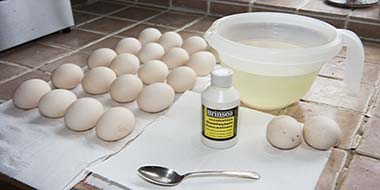
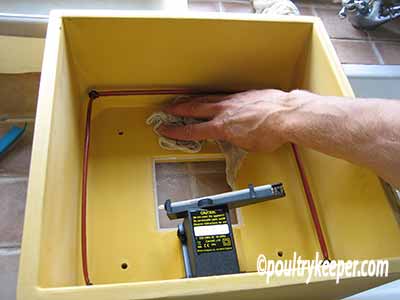
Ensure you follow the instructions on the side of the bottle carefully – if the solution is too strong, it could kill the embryo of your eggs. The cuticle also gets very slippery when wet, so be careful you don’t drop your eggs.
Congratulations, you now have clean eggs ready for incubation!


